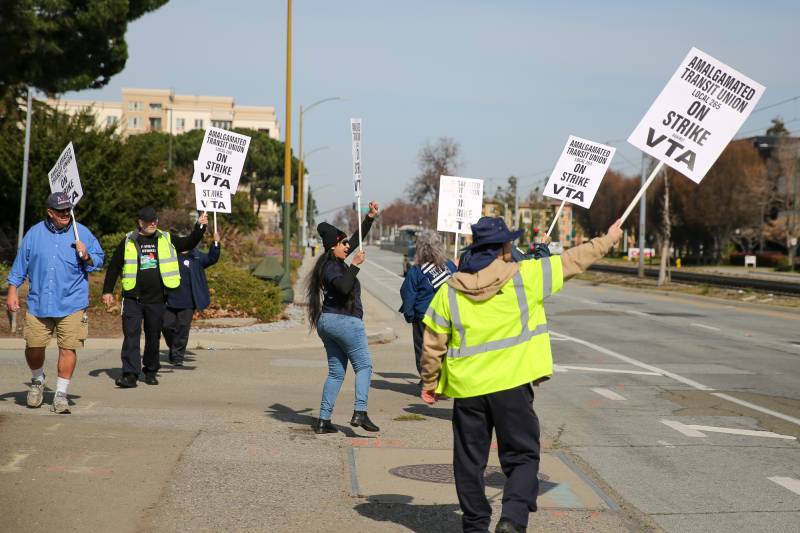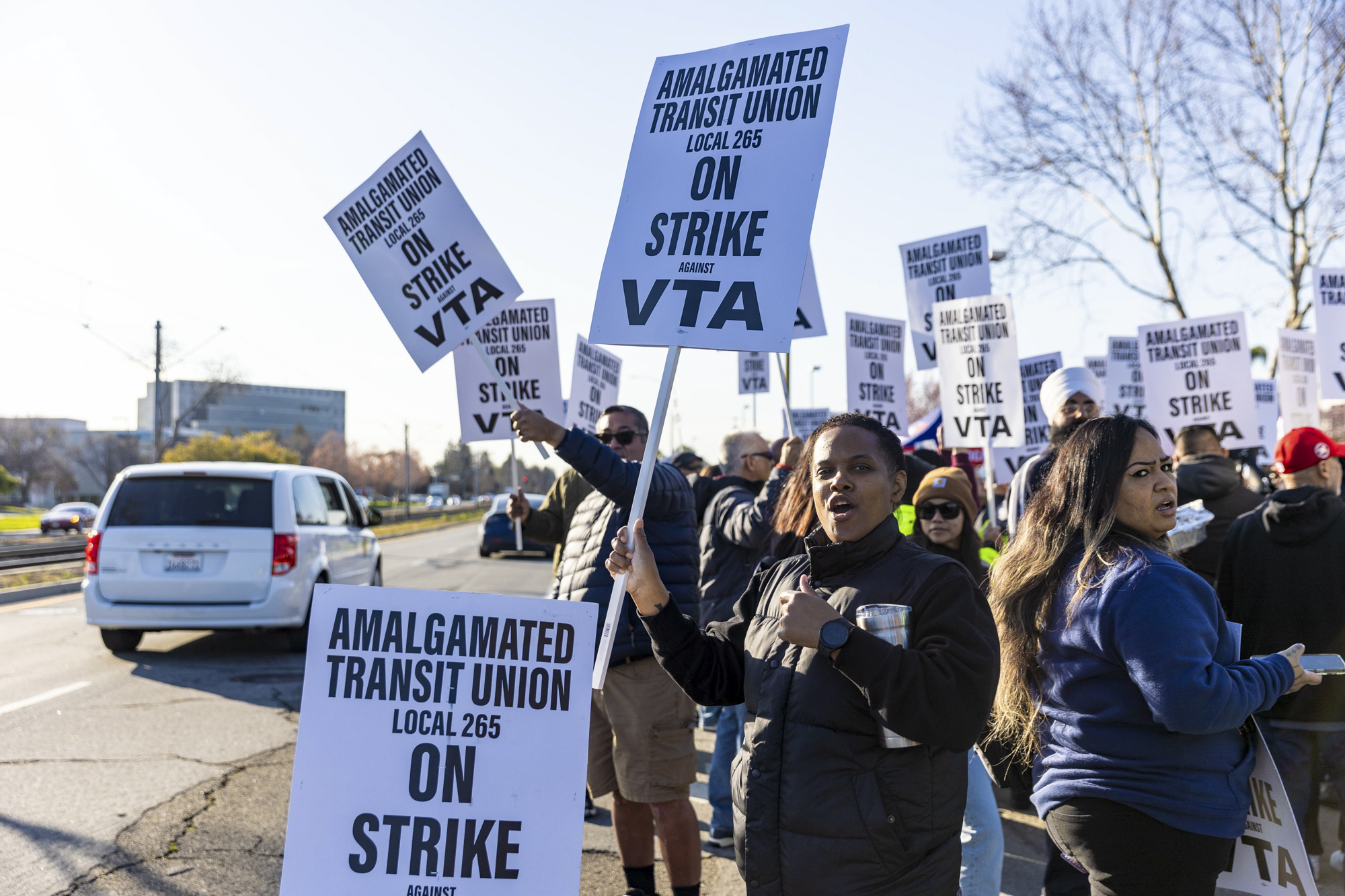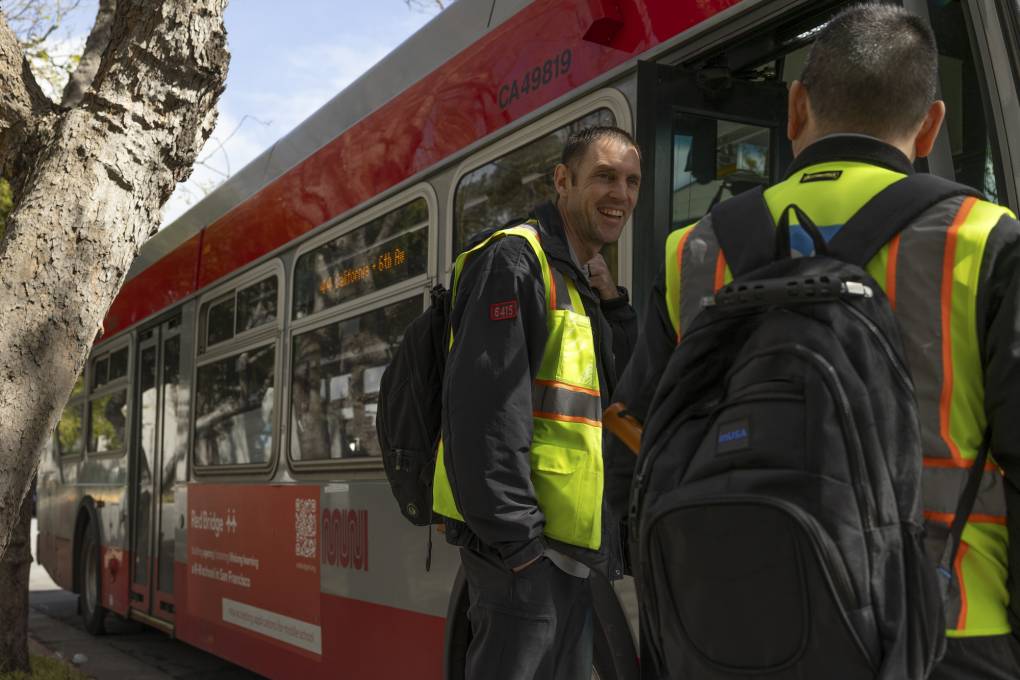Updated 7:50 p.m. Monday
Santa Clara Valley Transportation Authotrity’s legal challenge aiming to put a stop to the ongoing strike by transit workers in the South Bay has been dealt a major blow by a judge, according to newly filed court documents.
In an order filed with the Santa Clara County Superior Court Monday, Judge Daniel T. Nishigaya rejected VTA’s request for a temporary restraining order to immediately halt the historic strike by more than 1,500 bus drivers and train operators.
The judge allowed the case to proceed and set a court date for March 26, when the Amalgamated Transit Union Local 265, whose workers have been on strike since March 10, must argue why the court should not issue an injunction to halt the strike.
However, the denial of the temporary restraining order means the courts are unlikely to intervene in the labor dispute before March 26, by which time the union and the VTA may have reached a new contract.
The agency filed its complaint a week ago, seeking to force workers back to their jobs while negotiations over a new labor contract continue.


